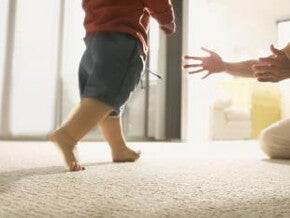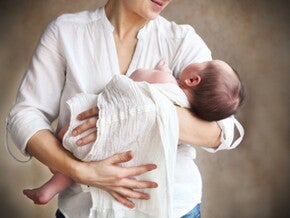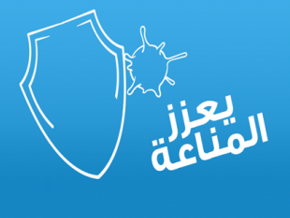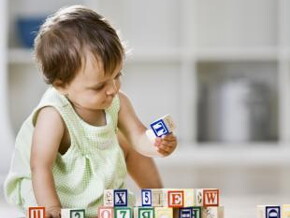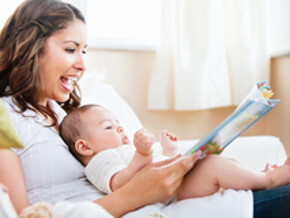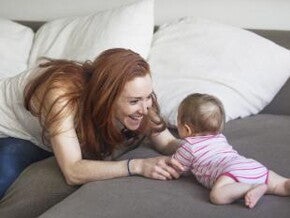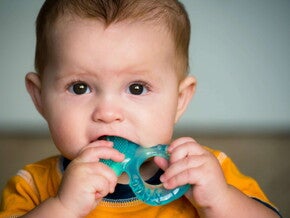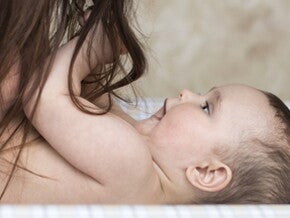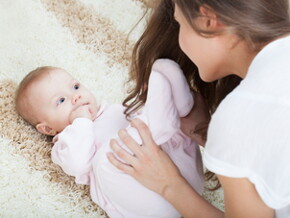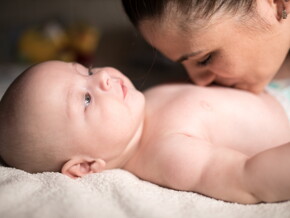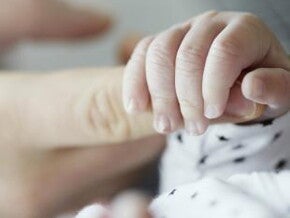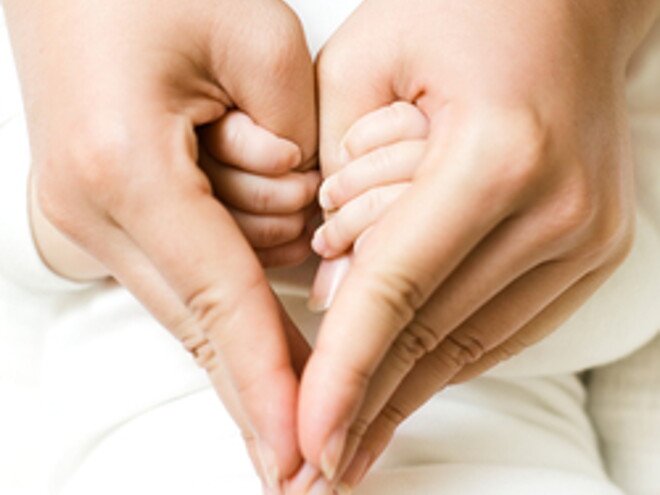
Social And Emotional Development In Babies
Developing Social-Emotional Skills
During the first year, your baby will reach many emotional and social development milestones. It’s true that he made his start in life as a newborn who sleeps all the time. But this fact will change soon and your bundle of joy will be more awake and responsive, as well as he will show more interest in interacting with people around.
One month after another, you will notice that your child has reached new emotional and social milestones, such as showing interest in people’s conversations, making the first social smile, fearing strangers, feeling jealous from other babies, focusing and moving from one activity to another, as well as developing few effective methods to communicate with you and imitate others.
Throughout this article, we will introduce to you the most important emotional and social milestones that babies usually develop throughout their first year. But remember. Every child develops at a different pace and the milestones we are about to mention may not literally apply to your child:
Between 0 and 3 months:
At this stage, babies spend most of their time trying to explore their bodies. So, they will most likely:
- Suck their fingers.
- Contemplate their hands.
- Look at where they were touched.
- Start to realize that they are separate entities from others, and learn how their hands and feet are connected to their bodies.
During this same stage, most babies start to make interest in people around them and learn how to recognize their caregivers. They will most likely:
- Feel secure in presence of a familiar grown-up.
- Respond to touch in a positive manner.
- Interact better in wake times or when calm and focused.
- Benefit from short and repetitive interactions than long and infrequent ones.
- Smile and enjoy social stimulations.
Between 3 and 6 months old:
At this stage, babies may start interacting with their social environment. So they will likely:
- Play Peek-a-boo game.
- Pay attention to their names and respond when called.
- Smile spontaneously.
- Laugh their heart out.
Between 6 and 9 months old:
At this stage, babies express a wide range of feelings and prefer familiar persons on strangers. They will most likely:
- Demonstrate their conflicting emotions in a clear way.
- Distinguish between friends and strangers.
- Respond actively and effectively to movements and languages.
- Get upset when losing one of their toys.
Between 9 and 12 months old:
As their first birthday approaches, babies develop their ability to self-regulate and imitate people around them. They will likely become more able to:
- Eat finger foods without help.
- Hold sippy cups and drink from them with help.
- Raise hands and feet while getting dressed.
- Imitate few simple acts and movements.
- Feel anxious when separated from their mothers.
This was a quick overview on the emotional and social development milestones of babies under 1 year. They may not be easy to detect as physical milestones, being strictly related to each child’s personal perception. Yet, they can’t be denied and their importance must emerge over time and before the child reaches school age.
As both emotional and social development milestones greatly affect babies’ behaviors, personality traits and who they’ll become later in life, we advise you to try your best to support your bundle of joy and provide him with all the safety, trust and encouragement he needs to learn the difference between right and wrong and how to overcome the challenges that he may encounter with his relationships and interactions with others.
Here is a checklist of few important advices and guidelines to factor in:
- Get to know your child’s preferences in terms of behaviors, toys and schedule. Make sure you care for him and try to meet his needs according to these preferences. And if you have to leave your baby with someone else while you work, remember to inform that person of what your baby loves, what soothes him and what irritates him, so he will better meet your child’s needs in your absence.
- Let your baby play, explore and follow his own interests. Every time he discovers something or makes a new step, don’t forget to show him your joy and enthusiasm. And whenever you see him making attempts to build a specific skill, don’t hesitate to offer help.
- Show your baby your love and compassion at all times, even when he’s upset and he cries a lot, as touching, holding, singing and talking can all convince your baby that he’s lovable and special, grant him security and teach him how to calm himself down as he grows older.
- Make sure your home is a safe and comfortable place for your baby, where he can gain confidence and reach social and emotional achievements.
- Set a particular routine for your baby so he can feel secure and confident, and gain more control over his world. Make sure you always manage to implement said routine at the same time and in the same setting daily.
At the end, we recommend that you follow these advices, stay by your baby’s side and observe him closely to meet his needs and help him develop the emotional and social skills that will affect his personality for life.
Read More: 6-12 Months Baby Development



